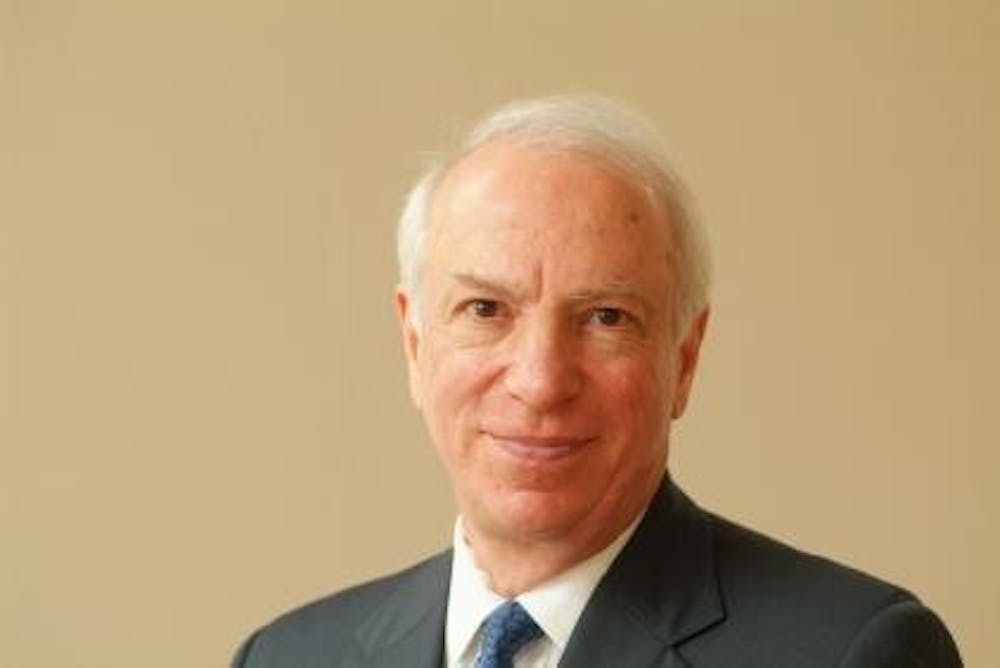University Law Prof. Richard J. Bonnie addressed the Medical School Wednesday on the topic of marijuana prohibition. The discussion, titled “The Surprising Collapse of Marijuana Prohibition: What Now?,” was sponsored by the History of Health Sciences Lecture Series and the Medical Center Hour.
Bonnie worked on the 1972 commission under former President Richard Nixon to define policy for the legality of marijuana. The commission proposed the decriminalization of marijuana so it would no longer be prohibited in medical use and scientific use, and criminal penalties would be removed.
Bonnie and other commission members said they believed “the collapse of the marijuana prohibition [was] at hand” following the release of the White House report and the “flurry” of decriminalization by 12 states.
“The Nixon administration was actually one of the most enlightened on drug policy in the administrations,” Bonnie said.
The commission did not support the legalization of marijuana for commercial use primarily due to the lack of data on the effects of marijuana. Bonnie said the commission did not know enough about the effects of marijuana and made assumptions based on the long term consequences of other substance addiction.
Dr. Nassima Ait-Daoud, assistant professor of psychiatry and neurobehavioral sciences, said there is still a lot more research to be done.
“[Doctors] need these restrictions on marijuana research to be loosened up, so we can learn more,” Ait-Daoud said.
A portion of these high restrictions came with the movement toward zero-tolerance of marijuana in response to evidence of higher experimentation among young people with marijuana.
The zero-tolerance policy also led to higher criminalization due to marijuana use. Today there are about 60,000 people incarcerated due to possession of marijuana. Both Bonnie and Ait-Daoud said they believe these people should not be in jail for such charges.
Bonnie said his goal is to decriminalize marijuana use and put regulations in place to reduce the criminalization of marijuana use and to promote public health.
“The regulations that we have in place for alcohol and marijuana are a failure,” Bonnie said. “[The government] needs to stop relying on locking people up and try to use the legal institutions to get them help.”
Several states have passed laws on marijuana use. Colorado and Washington’s laws legalizing recreational marijuana use are in direct defiance of federal law, but Congress did not react. Washington, D.C. and Alaska have also decriminalized marijuana use.
“It completely flabbergasted me that they adopted decriminalization and legalization of recreational use [in Colorado and Washington],” Bonnie said.
Bonnie and Ait-Daoud said they worry about the effects of legalization of marijuana on kids and the development of the adolescent brain.
Ait-Daoud said daily use of marijuana before the age of 17 is associated with a 60 percent dropout rate from high school and causes adolescents to be 18 times more likely to become dependent and seven times more likely to commit suicide due to a change in brain morphology.
While marijuana may have some components that are safe and helpful in research, current dosage forms, quality control and purity regulations are not defined, which has kept medical marijuana from being approved by the FDA.
Bonnie said the best way to approach to marijuana use is a cost benefit model — the cost of prohibition highly outweighs the public health risks of marijuana use. He said new forms of regulation, using the model of tobacco regulations rather than alcohol regulations, would free up police resources and allow further research.
“If you look at what we have been doing with alcohol use in the country, it would look like we are facilitating alcohol use,” Bonnie said. “The better model is the tobacco model that discourages the use of tobacco on the line between prohibition and laissez-faire.”
Bonnie said the overall goal of marijuana regulation should be minimizing excessive use and limiting the availability to the young.







